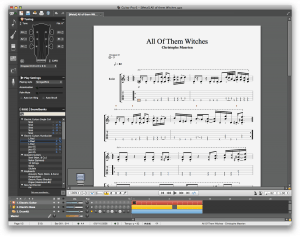Easy Vs Challenging
It’s fun to pick up the guitar and learn an easy song really quickly. The immediate reward of learning an easy song is a great feeling. Trying harder songs, however, can be daunting. When deciding which songs to bring in to your guitar lessons, by all means go for songs that you like, but don’t shy away from songs that you might think are too ambitious.
Challenge Yourself
The more you try to do things that you find hard, the easier they will get. Was the guitar easy when you first started playing? Chances are it took a while to get used to holding down the strings, holding the guitar, holding, the plectrum, and changing chords in a timely fashion. Now that you can do those things, that doesn’t mean that you should stop trying to challenge yourself with your guitar playing. If you enjoy being challenged, then this goes without saying. If you don’t enjoy a challenge, then consider this: Every challenging song that you conquer will directly lead to you finding other songs LESS challenging in the future. Think of it as a long-term investment in making things easier.
Good Things Take Time
Sure, it’s great to learn a new song in a matter of minutes and have fun playing the guitar. I’m in no way trying to discourage you from doing that. The reward of being able to confidently play a song that you struggled with in the beginning is one of the best feelings that you will get as a musician. Depending on how high you’re aiming, working on a more challenging song will take time – certainly more time than the fifteen minutes that you would spend on a simple four-chord song.
Don’t Sweat The Choice
Be a bit indiscriminate when picking a harder song. Target songs that you like – you won’t properly enjoy learning to play a song that you don’t like the sound of. Disregard any previous conceptions that you may have had about why you haven’t started learning particular songs that you like. “It’s too hard” is relative – the more time you spend on it, the less hard it will become. There may be certain techniques used in the song that you haven’t learned yet – why not learn them? Your guitar coach will be more than happy to show you the new technique and help you get to grips with it in preparation for your chosen song – your chosen song may even be a good vehicle for teaching you that technique. “I need an electric guitar for that” is only true if there’s deliberate use of a floating tremolo or other electric-only system, or if it makes frequent use of the 20th fret or higher. Even then, parts can simply be learned down the octave. Physically and stylistically, rockier songs can sound awesome on an acoustic guitar, and learning them with the higher string tension on an acoustic means that if you decide to get an electric guitar later on, you will find the thinner strings much easier to play.
Why Is It Challenging?
What is it about the song that you’ve chosen that challenges you? Is it faster than the songs that you have played in the past? Does it present difficulties for your left hand or your right hand? Are there new, more complicated chords involved? Does it use barre chords? Is there a challenging solo? Is it only available as sheet music with no TAB? Every single one of these hurdles can be overcome with work, and can be overcome in a fraction of the time with help from your guitar coach. Chances are that we even have our own resources that can help you develop any part of your guitar playing that needs to improve in order for you to reach your goals.
Monitor Your Expectations
This is without a doubt the key to success when attempting more challenging repertoire. The point of choosing challenging repertoire is that it isn’t something that you can knock over in one session. You can’t expect yourself to be able to magically start playing something after working at it for only a few minutes. Expect progress to be made gradually. No matter how little ground you feel that you’ve made in one session, remember that any progress is good progress. If you are the type of person that benefits from setting goals, then by all means do so – reaching them is a surefire way of gauging your improvement. Don’t be discouraged if certain parts of the song challenge you more than expected. If one phrase takes a couple of weeks to master, then you will be all the more proud of having mastered it when it happens.
This advice is applicable to all aspects of your guitar playing – be careful of expecting too much of yourself. Check out these articles on the Guitar Gym website: “Are You Really Too Busy To Learn The Guitar?” and “Psychology For Success: Understanding Cognitive Dissonance and How It Can Effect Your Guitar Playing”. They highlight the effect of cognitive dissonance caused by not meeting your own expectations for time spent practicing or tangible improvement. Feel free to discuss this matter with your coach, as well.
Aim High
Don’t be afraid to be ambitious. If a song is extremely hard, it can still be tackled by compartmentalising and working on specific section and specific techniques. Songs can be adopted as a long-term project and worked on alongside other material – you don’t need to devote your entire practice schedule to one song until it is finished. Spend a couple of minutes from each session looking at a part of it. Steady progress will be made, and any progress is good progress.
Ultimately, learning to play harder songs is a guaranteed way to make sure that you are getting better at the guitar. Getting better means that more songs become available, songs that might have been more challenging in the past become easier, and inevitably, the guitar becomes even more fun. Take the leap and try playing a harder song.

